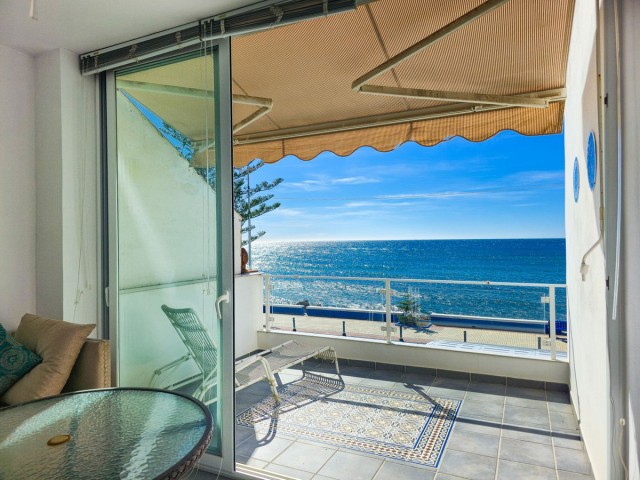What Happens to Jointly Owned Spanish Properties Upon Death?
When it comes to jointly owned Spanish properties and inheritance laws, navigating the legal terrain can be complex and daunting. Understanding the intricacies of what happens to these properties upon death is crucial for individuals looking to secure their assets for their loved ones. In Spain, inheritance laws, particularly as they pertain to jointly owned properties, involve a unique set of regulations and procedures, which require careful consideration.
The scenic beauty and alluring charm of Spanish properties often make them highly desirable assets, but unraveling the legal aspects in the event of a property owner's passing demands a clear understanding of the local laws. From navigating joint tenancy and tenancy in common to comprehending the impact of a will or the absence thereof on the property, various factors come into play. In this article, we delve into the intricate world of inheritance laws in Spain, shedding light on what happens to jointly owned properties, providing clarity on the legal implications, and offering guidance to help individuals secure their property for the future.
Overview of Spanish Inheritance Laws:
Understanding the broader context of Spanish inheritance laws is fundamental for anyone looking to comprehend what happens to jointly owned properties upon death. Spain has a civil law legal system, and inheritance laws are primarily governed by the Spanish Civil Code.
In Spain, there is a legal concept known as "forced heirship," which means that a portion of the deceased person's estate must go to their close family members, such as children and spouses. This legal framework can impact the distribution of jointly owned properties, especially if the deceased owner did not leave a valid will.
Types of Joint Property Ownership in Spain:
Before delving into the intricacies of inheritance laws, it is essential to understand the various types of joint property ownership in Spain. The two most common forms are joint tenancy and tenancy in common.
Joint tenancy involves co-ownership with a right of survivorship. In the event of one owner's death, their share automatically passes to the surviving owner(s). On the other hand, tenancy in common allows each co-owner to pass on their share to their chosen heirs through a will or according to the laws of intestacy.
The choice between joint tenancy and tenancy in common can significantly impact what happens to a jointly owned property upon the death of one of the owners.
Inheritance Rights and Taxes for Jointly Owned Properties in Spain:
In Spain, inheritance tax is levied on the beneficiaries rather than the estate. The relationship between the deceased and the beneficiary plays a crucial role in determining the applicable tax rates. For close family members, such as spouses and children, there are often significant tax reductions or exemptions.
However, when it comes to jointly owned properties, the tax implications can be intricate. The value of the deceased owner's share in the property is subject to inheritance tax, and the tax liability varies based on factors like the relationship between the co-owners and the region in Spain where the property is located.
Understanding these tax implications is vital for planning and ensuring that the surviving co-owners or beneficiaries are not burdened with substantial tax liabilities.
Legal Procedures and Documentation After the Death of a Joint Property Owner:
When a joint property owner passes away, several legal procedures and documentation requirements come into play. The first step typically involves obtaining a death certificate, which is a crucial document for initiating the inheritance process.
If the deceased owner left a will, it must be presented to the relevant authorities. If there is no will, the inheritance process follows the rules of intestacy outlined in the Spanish Civil Code. The legal heirs, as determined by law, are entitled to inherit the deceased owner's share of the property.
Apart from the will, other documents, such as property deeds, proof of relationship to the deceased, and any existing agreements between the co-owners, are essential for the inheritance process.
Common Challenges and Disputes in Inheritance of Jointly Owned Properties:
Inheriting jointly owned properties in Spain can be accompanied by various challenges and disputes. One common source of conflict arises when there is no clear agreement among co-owners regarding the future management or sale of the property.
Disputes can also arise if there are disagreements about the valuation of the property for tax purposes or if some heirs feel they were unfairly treated in the inheritance distribution.
Moreover, when dealing with international heirs or multiple heirs with conflicting interests, the complexity of the inheritance process is heightened. Resolving these disputes often requires legal intervention and careful consideration of all relevant factors.
Important Considerations for Foreign Property Owners in Spain:
Foreigners who own property in Spain must be aware of the unique challenges they may face in the inheritance process. While the basic principles of inheritance law apply to everyone, there can be additional complications for non-resident property owners.
Language barriers, unfamiliarity with Spanish legal procedures, and differences in legal systems can pose challenges. Seeking professional advice and ensuring that all documents are translated and understood is crucial for foreign property owners to navigate the inheritance process smoothly.
Seeking Legal Advice for Navigating Spanish Inheritance Laws:
Given the complexities and potential pitfalls in the inheritance process for jointly owned properties in Spain, seeking legal advice is highly recommended. A knowledgeable and experienced Spanish inheritance lawyer can provide guidance on the specific circumstances of each case, ensuring that the process is conducted in compliance with local laws.
Legal professionals can assist in drafting wills, navigating tax implications, and representing clients in case of disputes. Engaging a lawyer early in the process can help prevent potential issues and streamline the inheritance proceedings.
Case Studies and Real-Life Examples:
To illustrate the practical application of the concepts discussed, let's explore a couple of case studies.
Case Study 1: Joint Tenancy with a Will
In this scenario, two siblings jointly own a property in Marbella. They hold the property in joint tenancy, and one of the siblings passes away, leaving a valid will. The will specifies that the deceased sibling's share of the property should go to their children. In this case, the surviving sibling retains ownership of their share, and the deceased sibling's share is transferred to the specified heirs as per the will.
Case Study 2: Tenancy in Common without a Will
In another case, two friends own a vacation home in Ibiza as tenants in common. One friend unexpectedly passes away without leaving a will. In this situation, the Spanish Civil Code determines the legal heirs, which may include the deceased friend's siblings or parents. The surviving friend retains ownership of their share, while the deceased friend's share is inherited by the legally determined heirs.
Conclusion:
In conclusion, understanding what happens to jointly owned Spanish properties upon death is a crucial aspect of estate planning for property owners and their heirs. The interplay of inheritance laws, property ownership structures, and tax implications creates a complex web that requires careful navigation.
By grasping the nuances of Spanish inheritance laws, choosing the right type of joint property ownership, and seeking legal advice when necessary, individuals can ensure that their assets are protected and passed on to their chosen heirs in a manner that aligns with their wishes.
Whether you are a Spanish resident or a foreign property owner, being proactive in addressing these matters can bring peace of mind and avoid potential conflicts among heirs. In the picturesque landscape of Spain, where the allure of property ownership is strong, understanding the legal landscape is key to preserving the legacy of one's real estate investments.
















